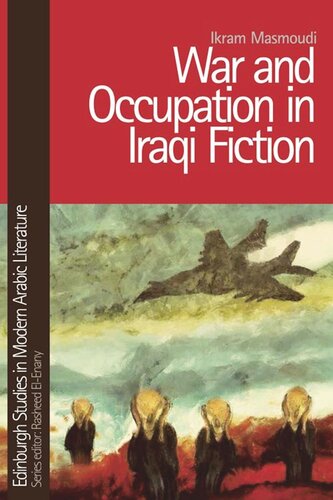

Most ebook files are in PDF format, so you can easily read them using various software such as Foxit Reader or directly on the Google Chrome browser.
Some ebook files are released by publishers in other formats such as .awz, .mobi, .epub, .fb2, etc. You may need to install specific software to read these formats on mobile/PC, such as Calibre.
Please read the tutorial at this link: https://ebookbell.com/faq
We offer FREE conversion to the popular formats you request; however, this may take some time. Therefore, right after payment, please email us, and we will try to provide the service as quickly as possible.
For some exceptional file formats or broken links (if any), please refrain from opening any disputes. Instead, email us first, and we will try to assist within a maximum of 6 hours.
EbookBell Team

0.0
0 reviewsExamines tangible experiences of war and occupation in recent Iraqi fiction
The last three decades in Iraqi history can be summarized in these words: dictatorship, war and occupation. After the fall of Saddam’s regime Iraqi novelists are not only writing about the occupation and the current disintegration of Iraq but are also revisiting previous wars that devastated their lives. This book examines how recent Iraqi fiction about war depicts the Iraqi subject in its relation to war, coercion, subjugation and occupation. The theoretical medieval concept of the homo sacer, the killable, as defined by Giorgio Agamben is used to explore the lives and the experiences of different war actors such as the soldier, the war deserter, the camp detainee and the suicide bomber depicted in their “bare life” as men doomed to death in the necropolitical context.
War and Occupation in Iraqi Fiction is an exploration of fictional works by a new generation of leading Iraqi authors such as Ali Badr, Shakir Nuri, Najm Wali, Hdiya Hussein and others. It brings to light the overarching continuum in the production of homines sacri in Iraq. Instances of homo sacer under the dictatorship are complemented by new instances found in the camp and under the state of exception of the occupation and the war on terror.
Key Features